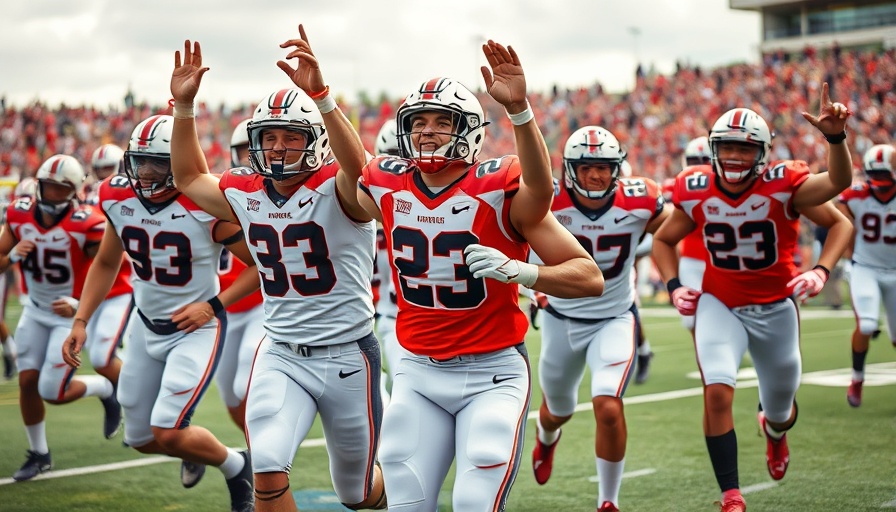
Tragic Shooting Shakes FSU Community
The recent shooting of Florida State University linebacker Ethan Pritchard has sent shockwaves through the campus and the broader sports community. Pritchard, a promising freshman athlete, was shot in the back of the head while parked in a vehicle, reportedly dropping off family members. Such violence, particularly against young athletes, raises significant questions about safety in our communities and the rampant issue of mistaken identity in gun-related crimes. As the investigation unfolds, the implications reach far beyond the field.
Who Are the Suspects?
Authorities have arrested four individuals linked to this shocking incident. Among them are Caron Miller (18), Jayden Bodison (22), and a 16-year-old, all facing serious charges including three counts of attempted murder and shooting into an occupied vehicle. Germany Atkins (23) was charged with a violation of probation. This diverse group represents a troubling reality: young lives involved in life-altering decisions. Their future now hangs in a fragile balance, pitting the hope for rehabilitation against the gravity of their actions.
The Context of Violence in Sports
This incident is part of a growing trend where athletes face violence that could be attributed to broader social issues, including rivalry, mistaken identity, and gang affiliations. Sports, inherently competitive and often aggressive, sometimes draw in elements from outside the arena that cross the line into real-world danger. Unfortunately, athletes are not only defenders on the field but can become targets off it. The relationship between sports culture and community violence is complex and requires deeper scrutiny.
Coping with Trauma: The Mental Health Impact
As Pritchard battles for his life in critical condition, the conversation around mental health, both for the victim and the community surrounding him, is paramount. Witnesses and friends grappling with feelings of helplessness and fear might find support in each other, but as seen in past cases, the long-term emotional scars can be hidden and challenging to address. Schools and communities must enhance mental health support, ensuring that athletes—and those who look up to them—can find pathways to cope with trauma.
Public Reaction and Outcry
The outrage from students, faculty, and fans at FSU is palpable. Many are calling for better community support and drastic changes to local safety measures. Social media platforms are abuzz with discussions about violence against athletes, highlighting a need for concerted efforts towards prevention. Awareness campaigns could help bring broader social consciousness on the implications of gun violence within youth culture. As advocates for change rally, it’s crucial that the focus not only be on punishment but on prevention and rehabilitation.
Sports in a Changing Society
In recent years, a slew of athletes from various sports have become unforeseen victims of violence, leading to discussions about how society perceives, treats, and protects its sports figures. Movements advocating for gun control and community safety often draw prominent figures in sports as spokespersons, merging the worlds of athletics and activism. What does it mean for the soul of a sport when its players cannot feel safe? This incident serves as a reminder that the sporting world is not an isolated bubble but rather a reflection of society at large.
Looking Ahead: Safety and Awareness Initiatives
The aftermath of this tragic incident presents an opportunity for college sports communities to reassess their role in ensuring safety for their athletes. FSU, along with other institutions, must consider implementing more robust educational programs that address the implications of violence in relation to sports. Initiatives could include mentoring programs, workshops on conflict resolution, and even partnerships with law enforcement to foster trust and safety around campus. The time for proactive measures is now, aligning the passion for sports with the necessity for peace.
Conclusion: Together Against Violence
The case of Ethan Pritchard serves as both a shocking reminder of the vulnerabilities athletes face and a challenge to communities across the nation. Educators, families, and fans alike have a shared responsibility to advocate for environments where young athletes can thrive and pursue their passions without fear. As this narrative unfolds, it is crucial to channel our collective concern into action—promoting dialogue, supporting comprehensive outcries for change, and fostering an enduring commitment to safety in all sports arenas.
 Add Row
Add Row  Add
Add 




Write A Comment